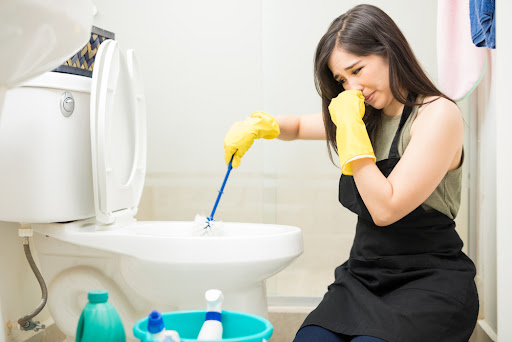Ready to dive into the fascinating (and sometimes stinky) world of drain odors? If you’ve ever wondered what causes those unpleasant smells coming from your drains and how to eliminate them, you’ve come to the right place. We’ll break down the science behind drain odors and provide some helpful tips for keeping your home smelling fresh and clean.
What Causes Drain Odors?
There are several reasons why your drains might emit unpleasant odors. Here are the most common culprits:
Bacterial Buildup
One of the primary reasons for drain odors is the buildup of bacteria in your pipes. As food particles, grease, and other organic materials make their way down your drains, they can accumulate on the pipe walls. Over time, these substances begin to decompose, creating a breeding ground for odor-causing bacteria.
Sewer Gas
Another common cause of drain odors is sewer gas. This is a mixture of gasses, including methane, ammonia, and hydrogen sulfide, which are produced as waste materials decompose in your sewer system. When working correctly, your home’s plumbing system should prevent these gasses from entering your living spaces. However, if there’s a problem with your plumbing, such as a dry P-trap or a blocked vent pipe, sewer gas can seep into your home and cause unpleasant odors.
Mold and Mildew
Mold and mildew can also contribute to drain odors, particularly in damp areas like your bathroom. These fungi thrive in moist environments and can produce a musty smell that wafts up from your drains.
How to Eliminate Drain Odors
Now that we know what causes drain odors, let’s explore some effective ways to eliminate them:
Clean Your Drains Regularly
Regular drain cleaning is essential for preventing bacterial buildup and maintaining a fresh-smelling home. You can use a combination of hot water, baking soda, and vinegar to clean your drains naturally. Simply pour one cup of baking soda down the drain, followed by one cup of white vinegar. Allow the mixture to fizz and work its magic for 10-15 minutes, then flush with hot water.
Check Your P-Traps
A P-trap is a U-shaped pipe found beneath your sinks, designed to trap water and create a barrier between your living spaces and sewer gasses. If a P-trap becomes dry or clogged, it can allow sewer gas to enter your home. To prevent this, ensure that all P-traps are properly filled with water by running each faucet for a few seconds every couple of weeks.
Inspect and Clear Vent Pipes
Plumbing vent pipes help regulate air pressure in your plumbing system and allow sewer gasses to escape outside. If a vent pipe becomes blocked, it can cause sewer gas to back up into your home. Regularly inspect your vent pipes for blockages (such as leaves, bird nests, or debris) and clear any obstructions you find.
Address Mold and Mildew Issues
To prevent mold and mildew from contributing to drain odors, take steps to control moisture levels in your home. Ensure that bathrooms are well-ventilated, fix any plumbing leaks promptly, and consider using a dehumidifier in damp areas.
When to Call in the Experts
If you’ve tried these DIY solutions and still can’t eliminate drain odors, it might be time to call in the professionals. At Pure Plumbing & Air, our experienced technicians can expertly diagnose and resolve any plumbing issues that may be causing unpleasant smells in your home. We offer the best hydro jetting in Las Vegas and the surrounding areas to keep your drain squeaky clean.
Don’t let drain odors spoil your living environment — contact us today for fast, friendly, and reliable service.

